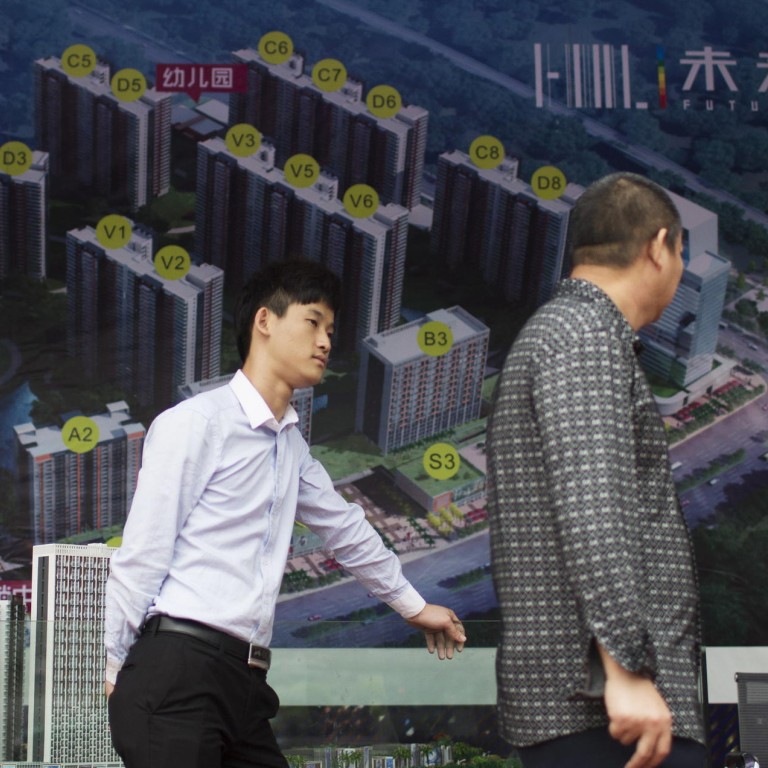
Two-thirds of residents unhappy with home prices, PBOC survey shows
Survey says two-thirds of residents are still unhappy about home prices
Two-thirds of mainland households polled in a People's Bank of China survey complained that home prices were "unacceptably high" and a third expected prices to climb further over the next three months.
The quarterly survey by the PBOC released yesterday polled 20,000 urban residents across 50 cities. It was released on the heels of latest data from the National Bureau of Statistics that showed housing inflation accelerated in November despite fresh measures taken in recent months by more than a dozen cities.
The fourth-quarter survey showed 66.5 per cent of respondents regarded home prices as "unacceptably high", down from 67.6 per cent in the third quarter, the central bank said, adding that only 2.4 per cent were happy with home price levels.
On broad consumer prices, 61.6 per cent of respondents complained that prices were "unacceptably high", up from 59.8 per cent three months ago.
Broken down by cities, 73.8 per cent of respondents in first-tier cities - Beijing, Shanghai, Guangzhou and Shenzhen - considered local home prices were too high, and this view was shared by 61.8 per cent from those in second-tier cities, mainly provincial capitals including Hangzhou and Nanjing. The ratios were down from 76 per cent and 64.9 per cent, respectively.
"The high home-price pressure felt by urban residents in first- and second-tier cities has moderated," the PBOC said of the survey results.
Top-tier cities have rolled out fresh tightening steps in the past three months to contain housing inflation by raising deposit requirements, making it harder for non-locals to buy homes and more fiercely restricting multiple home purchases by local residents.
Authorities have, meanwhile, unveiled a spate of reforms to cut local governments' reliance on land sale proceeds and increase the supply of affordable homes.
The PBOC's survey showed that 32.5 per cent of respondents predicted home prices would rise in the next quarter, while only 7.5 per cent expected the opposite.
Only 13.2 per cent said they planned to buy a home in the next three months, "unchanged from the previous quarter and a relatively low reading since 1999", the central bank said.
Property investment, though, remained the No2 most-favoured investment option, only second to mutual funds and wealth management products.
Two parallel surveys on entrepreneurs and bankers showed they were more confident about the economy than they were three months ago.
However, an index measuring companies' export orders in the survey fell to 48.7 in the fourth quarter from three months ago, although domestic orders improved. Another index gauging the demand for loans edged down to 74.4 from 74.7 in the third quarter.
Most economists expect the world's No2 economy to beat the official target for full-year growth of 7.5 per cent in 2013, after the pace slowed to a 13-year low of 7.8 per cent last year.
In the first three quarters, the economy grew 7.7 per cent from a year ago.

